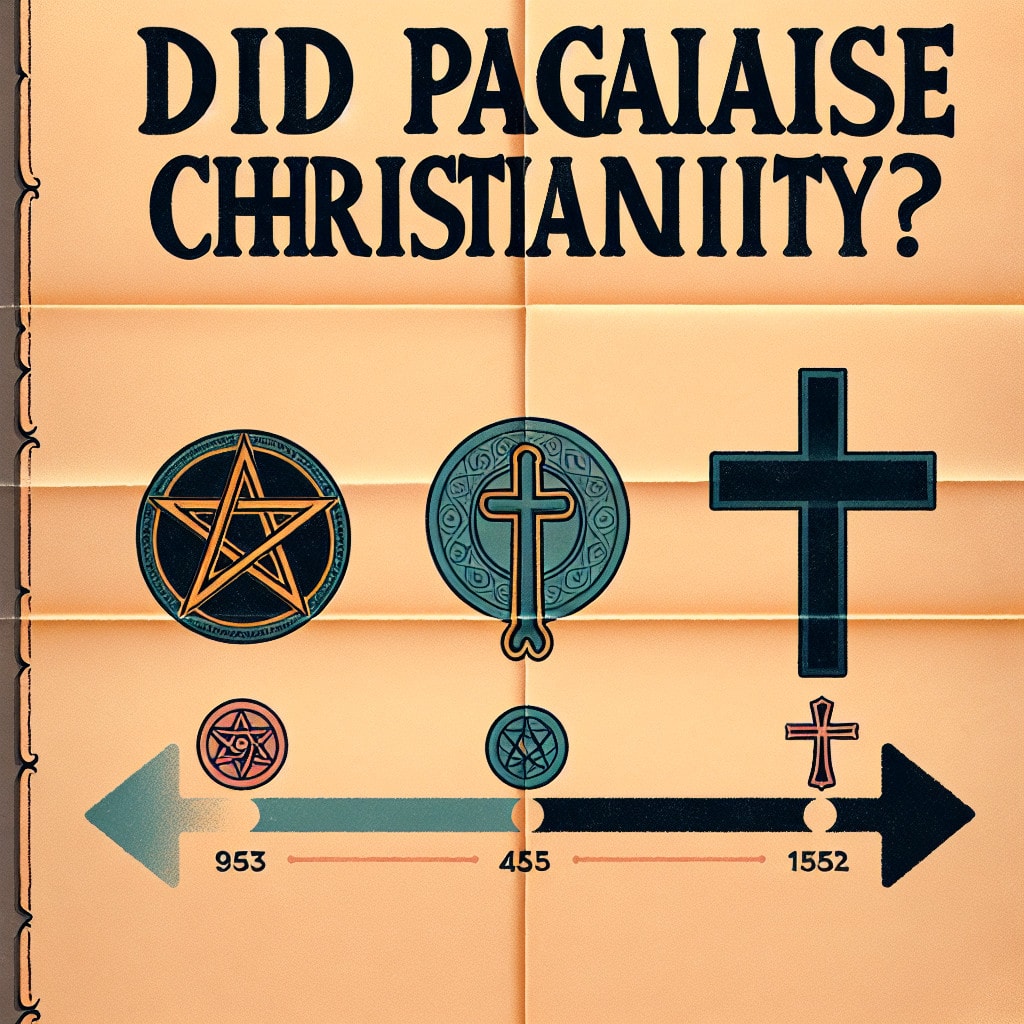The debate of whether paganism or Christianity existed first has been a long-standing one, with both sides having strong arguments to support their claims. This article will take a closer look at the evidence that suggests that paganism preceded Christianity, and the various theories that have been put forward in support of this idea. We will examine archaeological findings, historical records, and religious beliefs to better understand why some believe that paganism pre-dated Christianity. Finally, we will consider what this might mean for the two religions and how their relationship has evolved over time.

Paganism is a term used to describe any set of beliefs or practices that are outside the mainstream of traditional Christianity. It is an umbrella term for a variety of religious traditions, including Wicca, Druidism, and some forms of Shamanism, which can be found in various parts of the world. The term “pagan” comes from the Latin pagus, meaning “village” or “countryside.” In the past, pagans were often seen as “heathens” or “outsiders” because of their beliefs and practices.
Paganism has a long history, stretching back thousands of years before the birth of Christianity. Ancient pagan religions were based on a belief in multiple gods and goddesses, with the gods and goddesses of one region often resembling those of another. These gods and goddesses were usually connected to natural phenomena, such as the sun, moon, stars, and weather.
So, did paganism come before Christianity? The answer is yes. Paganism predates Christianity by thousands of years and was a well-established belief system in many parts of the world when Jesus Christ was born. It is impossible to pinpoint an exact date for when Paganism began, as it likely evolved from a variety of ancient beliefs.
What Are the Origins of Paganism?
The origins of Paganism are complex and varied. It is believed that Paganism originated in ancient Sumer and Babylon, which were two of the earliest civilizations in the world. It is also believed that it was adopted by the Greeks, Romans, and other ancient cultures.
The exact beliefs and practices of Paganism vary widely from culture to culture, but many of them share common elements. These elements include a belief in multiple gods and goddesses, rituals and ceremonies, and a reverence for nature and the environment.
How Did Christianity Come About?
Christianity is the world’s largest religion, with over 2 billion adherents. It began in the 1st century A.D. with the life and teachings of Jesus Christ. Christianity spread rapidly across the Roman Empire and eventually became the official religion of the Roman Empire in the 4th century A.D.
Christianity is based on the belief in one god, the Father, the Son, and the Holy Spirit, and in Jesus Christ as the son of God. Christianity also includes beliefs about the afterlife, the resurrection, and salvation through Jesus Christ.
How Did Christianity Differ From Paganism?
Christianity differs from Paganism in several ways. One of the most significant differences is the concept of monotheism, or the belief in one god. This is in contrast to Paganism, which is polytheistic and believes in multiple gods and goddesses. Christianity also places greater emphasis on the afterlife, while Paganism focuses more on honoring the gods and goddesses in the present life.
Another major difference between Paganism and Christianity is their respective views on sin and morality. Christianity teaches that sin is an offense against God, and that redemption can only be achieved through faith in Jesus Christ. Paganism, on the other hand, does not have a concept of sin and views morality as something that is relative and based on the individual’s personal beliefs.
Conclusion
In conclusion, Paganism predates Christianity by thousands of years and was a well-established belief system in many parts of the world when Jesus Christ was born. Christianity differs from Paganism in several ways, including its concept of monotheism, its focus on the afterlife, and its views on sin and morality. While Paganism and Christianity may have some similarities, they are ultimately two distinct belief systems.
In conclusion, it is clear that the relationship between Christianity and Paganism is complex and multifaceted. The two traditions have a long and intertwined history, with Christianity emerging from Paganism and developing its own unique set of beliefs and practices. While Christianity eventually became the dominant religion in Europe, it is important to remember that it was built on the foundations of Paganism and that there is much to learn from both traditions.





